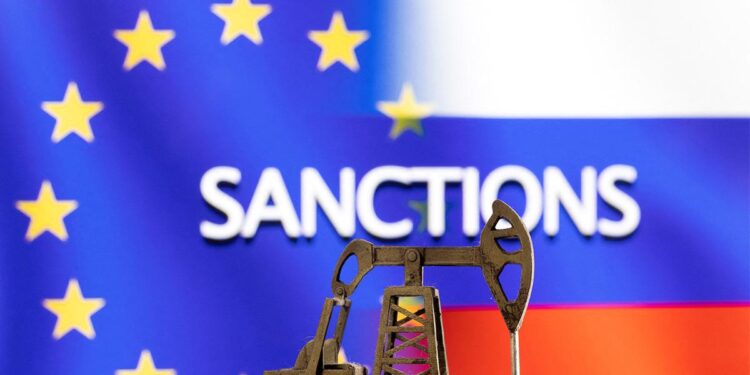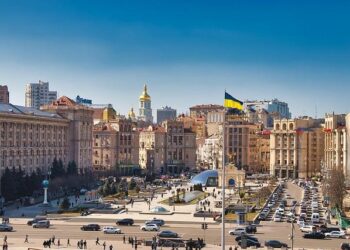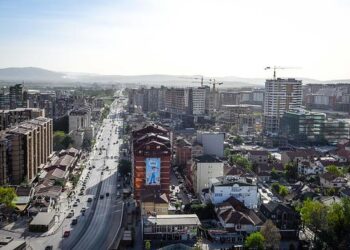The European Union has announced the initial steps to ease sanctions imposed on Kosovo, signaling a shift in its approach toward the Balkan territory. This development marks a significant moment in the EU’s diplomatic engagements in the region, following a period of heightened tensions and restrictive measures. According to Reuters, the move aims to encourage continued dialogue and stability amid ongoing political challenges in Kosovo.
EU Initiates Gradual Sanctions Relief on Kosovo Amid Regional Stability Efforts
The European Union has officially commenced a phased easing of sanctions previously imposed on Kosovo, marking a significant development in its broader strategy to foster regional stability in the Western Balkans. This move comes as part of ongoing diplomatic efforts to encourage constructive dialogue and greater cooperation between Kosovo and neighboring states. Key restrictions related to trade and financial transactions are being incrementally lifted, signaling confidence in Kosovo’s commitment to reform and adherence to international norms.
Key aspects of the sanctions relief include:
- Gradual removal of trade barriers affecting select goods
- Enhanced facilitation of cross-border financial operations
- Support mechanisms for targeted economic sectors to boost resilience
| Sanction Area | Current Status | Next Review |
|---|---|---|
| Trade Restrictions | Partially lifted | Q3 2024 |
| Financial Transactions | Restricted areas eased | Q4 2024 |
| Sectoral Support | Initiated | Ongoing |
Implications for Kosovo’s Economic Recovery and Political Dialogue
The decision by the EU to begin easing sanctions marks a potential turning point for Kosovo’s fragile economy. After months of restrictions that constrained trade and investment, this move is expected to inject much-needed momentum into key sectors such as manufacturing, agriculture, and services. Investors and local businesses are cautiously optimistic, viewing this development as a signal that regional stability and economic partnerships may soon improve. However, the recovery will largely depend on how swiftly the government leverages this window of opportunity to implement structural reforms and promote transparency.
On the political front, the sanctions relief could breathe new life into dialogue between Kosovo and its neighbors. The EU’s approach signals a willingness to reward constructive engagement and progress in resolving outstanding disputes. Yet, challenges remain, especially regarding trust-building and reaching compromises on sensitive issues like border management and minority rights. Key areas to watch include:
- Renewed bilateral negotiations supported by EU mediation
- Improved cooperation on cross-border infrastructure projects
- Commitments to democratic reforms and anti-corruption measures
| Sector | Expected Impact | Short-Term Challenges |
|---|---|---|
| Manufacturing | Increased exports and investment inflow | Supply chain disruptions |
| Agriculture | Access to EU markets; modernization incentives | Production scaling and quality standards |
| Political Dialogue | Facilitated talks; greater EU involvement | Mutual distrust; unresolved territorial issues |
Recommendations for Sustained Cooperation Between EU and Kosovo Authorities
The path to durable collaboration hinges on mutual respect and transparent communication between EU and Kosovo officials. Emphasizing regular dialogue forums can help pre-empt misunderstandings and facilitate smoother implementation of agreements. Both parties must invest in capacity-building initiatives, ensuring local authorities possess the necessary resources and expertise to align with EU standards effectively.
Key steps to enhance cooperation include:
- Establishing joint monitoring mechanisms to oversee progress and compliance
- Promoting community-level engagement to foster grassroots support for reforms
- Providing tailored technical assistance focusing on judicial and administrative reforms
| Priority Area | Recommended Action |
|---|---|
| Rule of Law | Strengthen independent judiciary oversight |
| Economic Development | Enhance trade facilitation and investment conditions |
| Security Cooperation | Coordinate cross-border intelligence sharing |
In Summary
As the European Union moves to ease sanctions on Kosovo, this development marks a significant step in the ongoing efforts to stabilize the region and encourage diplomatic progress. The decision reflects a nuanced approach aimed at supporting dialogue while maintaining pressure on key issues. Observers will be closely watching how this shift influences relations between Kosovo, Serbia, and the wider EU community in the coming months.















